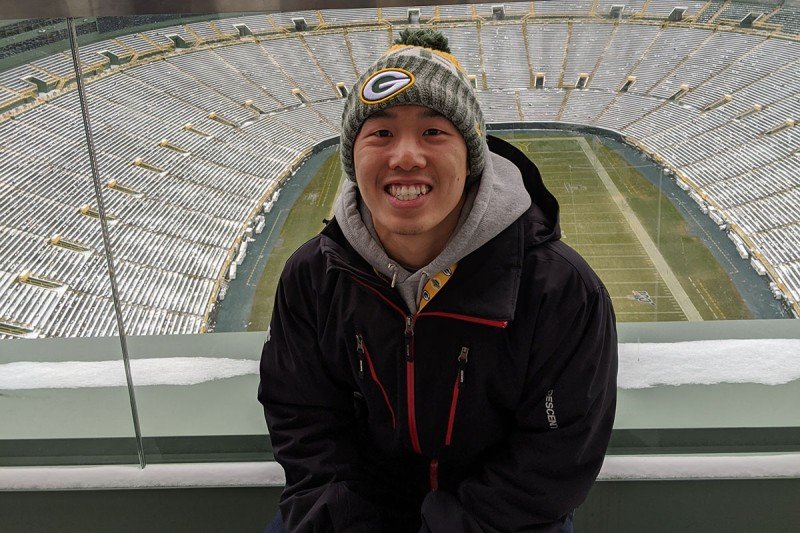
Chris Lee’s story begins in the 1940s, when his maternal grandfather boarded a ship in China headed to America.
Like tens of millions of immigrants, Mr. Wong entered the U.S. via Ellis Island Immigration Station, with the “hopes of making a better life for his family and their future,” says Chris, a client technology specialist at Memorial Sloan Kettering. Mr. Wong settled in the Bronx, where he got married and opened a laundromat with his wife.
“My grandfather’s name can be found in the (immigration) records,” Chris says, who learned recently about this part of his family’s history. “I haven’t been to Ellis Island since I was a kid, but I want to go back and look in the archives.”
Chris’ parents were born and raised in the Bronx in the mid-1950s — a time when “there weren’t many Asians in that part of New York City,” says Chris.

Fast-forward to Chris’ youth in Bergen County, New Jersey, a diverse community where he grew up among kids from a number of backgrounds.
“My childhood friends exposed me to different experiences, such as going to Mass and sitting down for an Italian Sunday dinner or enjoying Korean BBQ,” Chris says.
Chris’ family introduced his friends to their traditions. During Chinese New Year, Chris’ mom visited his school, bringing “little red envelopes (symbols of good luck) and Chinese food for my schoolmates,” he says. “My parents taught me how to do the lion dance (performed during Chinese New Year to bring good luck, and ward off evil spirits) and I would perform it with friends.”
Like many second-generation Americans born with immigrant roots, Chris struggled to retain his family’s native language, as his friends and teachers spoke English.
“My parents tried to get me to learn Chinese, but I never quite grasped it,” Chris says. His attempts to pick up the language when he was older weren’t successful, either.
COVID-19 Curveball
As a kid, Chris loved playing video games. This hobby evolved into a passion, leading Chris to pursue a Bachelor of Science in Information Science and a career in Information Technology (IT). He joined MSK in 2013.
In his current role, Chris supports the Office of Development, helping to troubleshoot the team’s IT issues. He also helps coordinate equipment installations across MSK.
Chris’ technical expertise was crucial as the global pandemic took hold of the world in early 2020, and MSK moved quickly with a plan of action. By March 2020, Chris and the rest of MSK’s tech team made it possible for so many staff members to work remotely.
Chris recalls those early days of “being buried with emails and messages [from colleagues] about how to access email, shared drives, web pages,” he says. “The pandemic threw us a curveball.”
Chris’ resolve wasn’t shaken.
“It’s how we always operate as a department — we adjust and adapt to new situations,” he says.
While “there have been a lot of career highlights” at MSK for Chris, he says is most proud of how everyone came together during the pandemic. He also is proud of his contributions as his department rolled out MSK’s hybrid work model, which supports a mix of in-person and virtual collaboration.
“We made sure all of the equipment was deployed and ready,” Chris says. “It was very stressful but also very exciting.”
The Importance of AANHPI Heritage Month
Chris thinks about his grandfather’s journey from China to the U.S., and how far his family has come in the seven decades since.

For Chris, Asian American, Native Hawaiian, and Pacific Islander (AANHPI) Heritage Month means “understanding and recognizing the accomplishments of my ancestors,” and appreciating the path they paved.
The month takes on particular meaning in the wake of anti-Asian bias and hate crimes.
“It is crushing to see the unprovoked attacks against fellow [AANHPI],” says Chris. “During this heritage month, it is great to see groups come together and acknowledge our past, present, and future.”
To help foster inclusivity and allyship, Chris says it is as simple as the lessons he learned as a kid.
“Learn about and respect each other’s traditions and cultures,” he encourages.